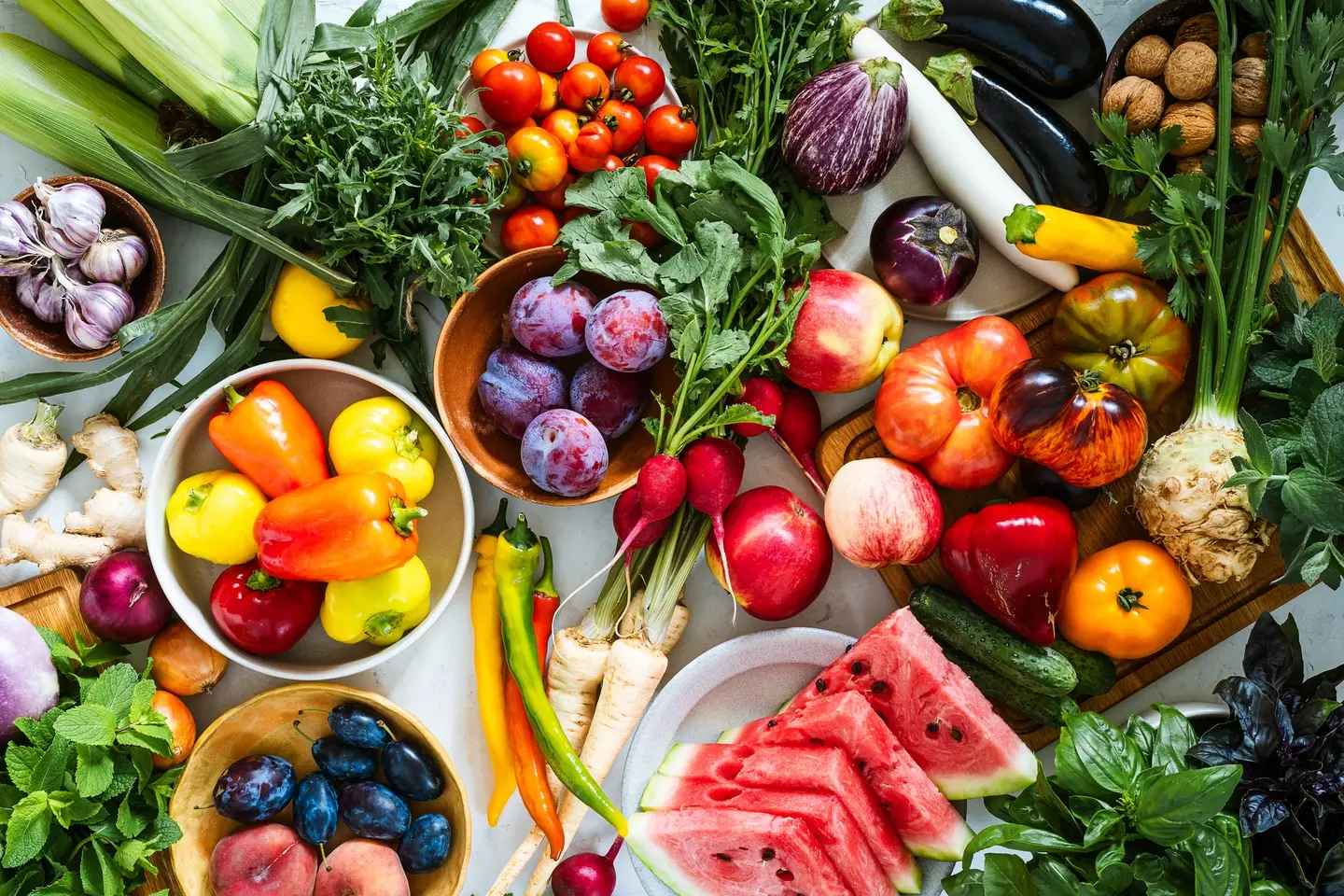
High blood pressure, or hypertension, is one of the most common health conditions worldwide, but it’s also highly influenced by lifestyle and in particular what we eat.
What we eat can either help reduce blood pressure or make it harder to control, with researchers showing that following a balanced eating pattern, such as the DASH diet (Dietary Approaches to Stop Hypertension), can be effective for our health.
Now the British Heart Foundation has given some advice and a breakdown of the best and worst foods for managing blood pressure.
Let's start with the best:
Fruit and vegetables
Rich in potassium, fibre, and other nutrients, fruits and vegetables are central to a blood pressure-friendly diet. Potassium helps the body balance sodium levels, which is important because excess salt raises blood pressure. Beets, spinach, celery, bananas, and berries are particularly beneficial, but variety matters - aim for at least five portions of different coloured fruits and vegetables daily.
Advert
BHF Senior Dietitian Victoria Taylor said: "Instead of focusing on one kind of fruit or vegetable, just try to make sure you eat at least five portions every day. By choosing a variety of different coloured fruit and vegetables, you’ll benefit from the wide range of nutrients they provide."

Wholegrains
Choosing wholegrains like oats, brown rice, and wholemeal bread over refined carbohydrates provides more fibre and nutrients. Fibre, especially beta-glucans from oats, has been linked to improved heart health and may help lower blood pressure.
Advert
Wholegrains are also considered to be filling, making them useful for weight management, another key factor in controlling hypertension and looking after overall health.
"Choose high-fibre, starchy carbs at all your meals as an easy way to up your fibre intake," Taylor advised.
"Try including other high-fibre foods, such as beans and lentils, nuts and seeds, and fruit and vegetables."
Lean protein
Protein sources such as chicken, turkey, fish, beans, and lentils offer the benefits of making us feel full without the excess saturated fat found in red and processed meats. Swapping in these options can also help keep weight and blood pressure in check.
Low fat dairy
Milk, yoghurt and other dairy foods provide calcium and protein, both important for cardiovascular health. Opting for low fat versions gives the benefits without too much saturated fat, which can otherwise contribute to circulatory problems.
Advert
It's also important to consider which foods can be bad for us and which ones to limit better blood pressure control and the advice highlights four foods to try and eat less of.
Taylor also warned that diet is not the only factor when it comes to reducing blood pressure, adding: "It is also important to take any medicines that you have been prescribed and consider other changes."
These include:
- being more physically active
- stopping smoking
- maintaining a healthy weight
It also boils down to avoiding these worst foods for high blood pressure:
Salty foods
Salt is a major driver of high blood pressure. Adults should aim for no more than 6g a day (this is 'about a teaspoon'), but hidden salt in processed foods like bread, cereals, sauces, and cured meats, means many people consume more without even realising.
Advert
Reading labels, cooking from scratch, and flavouring food with herbs and spices instead of salt can help and keep consumption in check.
Sugary and fatty foods
Though they don’t directly raise blood pressure, high calorie treats like cakes, pastries, and fried foods contribute to weight gain, which does in turn raise blood pressure.
Replacing them with healthier snacks, such as fruit, plain yogurt, or nuts, makes a big difference over time.
Advert
"Plan to have healthy snacks like fruit or plain yogurt if you get hungry between meals," Taylor said.
"Take something with you like a handful of nuts and dried fruit for when you are out and about."

Alcohol
Excess alcohol raises blood pressure and can lead to weight gain. Sticking within guidelines of no more than 14 units a week, spread over several days, with some alcohol free days can reduce risk.
Excess caffeine
Caffeine can cause a temporary rise in blood pressure, especially in sensitive individuals. While moderate intake (around 4–5 cups of coffee or tea daily) is usually safe, energy drinks, colas, and chocolate also contribute to caffeine intake and should be monitored.
Taylor also advised: "Some people are more sensitive to caffeine than others and drinking too much caffeine may affect blood pressure."
A diet centred on fruits, vegetables, wholegrains, lean protein, and low fat dairy, while limiting salt, alcohol, and processed foods, can make a real difference in blood pressure control.
It also goes without saying that following that combined with regular activity, a healthy weight, and prescribed medication if needed, can provide a strong foundation for managing hypertension.
